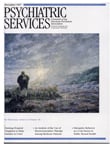The Two Mr. Gladstones is a remarkable book written by Travis Crosby, who is a psychohistorian at Wheaton College. It is remarkable partly because of the detailed diary Mr. Gladstone kept for 70 years, spanning his 62 years in Parliament, including four times as prime minister. But it is also remarkable because of Professor Crosby's very thorough and well-written integration of extensive research, including political correspondence, family papers, and of course Mr. Gladstone's diary.
As the title implies, there were two Mr. Gladstones. The public one was brilliant, well educated, well read, and an excellent orator, both in Parliament and among the people. The private one feared loss of control, mainly in Parliament, and when the stresses were too great, he would often retreat to the family home in rural Hawarden, take a vacation on the Continent, seek late-night soul-saving missionary work among prostitutes, or give angry speeches in Parliament and threaten to resign. Mr. Gladstone's often-erratic behavior was little understood by fellow members of Parliament. In terms of Professor Crosby's stress and coping theory, Mr. Gladstone's behavior was plausible, and it remained remarkably consistent over his lifetime.
External stressors, Professor Crosby postulates, call forth a set of cognitive responses. Stressors "may be any tension-filled or discordant event" and may be work related, marital, or disagreements and difficulties with friends or peers. They then produce psychological stress of varying degrees, which the individual perceives as "impending harm."
A two-stage response is elicited. First, the particular stress is cognitively appraised by the individual, and, second, coping mechanisms are activated to restore a sense of balance to the person's life. Coping skills are dependent on multiple factors such as family rearing, social skills, and a system of beliefs. They can be successful or unsuccessful and may include "humor, crying, boasting, talking randomly at length, or withdrawal." They can also include avoidance and retreat or outbursts of anger and aggression as a means of fending off threatening events, as shown by Gladstone in Parliament.
Gladstone's family life heavily influenced him. Born in 1809, he was the son of a successful Scottish entrepreneur and baronet. The family was staunch Church of England Evangelical, and the church fostered introspection and control over one's actions in dealing with ever-present sin. Gladstone's early schooling was also Evangelical, followed by Eton and Oxford. As an outstanding student, he learned how to adapt and survive within a system of rewards and punishments. Widely read in British history, politics, literature, and the Bible, he also participated in debate and politics. The schools' "hierarchical systems, a microcosm of the British ruling class, was based on privilege."
At the age of 23, Gladstone was elected to the House of Commons, and he remained in it for most of his long life. During the time that he was prime minister, the Church of Ireland was disestablished, the Irish land bill was legislated, the secret ballot was enacted, and the vote was extended. He also supported the movement for Irish home rule and was active in international affairs. But at the same time, he was volatile and moody, and he continually wrestled with internal conflict as he worked to retain control or regain what he perceived as lost control.
A more detailed description of the British parliamentary system would help readers who are not history buffs. However, Travis Crosby's book should be enjoyed by anyone interested in the psychological workings of a prominent leader. Readers who are psychodynamically trained or otherwise involved in the field of mental health will find the book fascinating.

